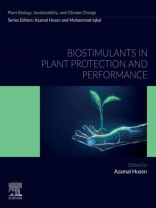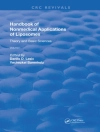Biostimulants (a diverse class of compounds including substances or microorganisms) are helpful in sustainable plants growth and development. They accelerate plant growth, yield, and chemical composition even under unfavorable conditions. The main biostimulants are nitrogen-containing compounds, humic materials, some specific compounds released by microbes, plants, and animals, various seaweed extracts, bio-based nanomaterials, phosphite, silicon, and so on. Additionally, new generation products and bioproducts are being developed for sustainable plant growth and protection. Some research works in the area of biotechnology and nanobiotechnology have shown improved sustainable plant growth and production. The protective roles of biostimulants are varied depends on the compound and plant species. Exposure of biostimulants have shown accelerated plants growth and developmental processes for instance, manage stomatal conductance and rate of transpiration, and increase rate of photosynthesis etc. They also increased crop plants immune systems against the adverse situation. Thus, use of innovations of new generation biostimulants also enhance plant production systems, through a significant reduction of synthetic chemicals such as pesticides and fertilizers. Moreover, bioinoculants commercial products obtained from seaweed extract, humic acids, amino acids, fulvic acids, and some microbial inoculants have shown their potential role in adventitious root induction in plants. Microbial inoculants or microbial-based biostimulants, as a promising and eco-friendly technology, can be widely used to address environmental concerns and fulfill the need for developing sustainable or modern agriculture practices. They have great potential to elicit plant tolerance to various climate change-related stresses and thus enhance plant growth and overall performance-related features. However, for successful implementation biostimulants-based agriculture in the field under changing climate conditions, an understanding of plant functions and biostimulants interaction or action mechanisms coping with various abiotic as well as biotic stresses at the physicochemical, metabolic, and molecular levels is required. Mycorrhizae are beneficial fungi that form symbiotic associations with plants and aid in plant development, disease resistance, and soil health is well established. Similarly, phyllospheric microbiome are known to possess different plant growth promotion attributes like nitrogen fixation, phosphate solubilization, biocontrol activity, and increase plant resistance towards abiotic stresses. The plant growth promotion traits possessed by these phyllospheric microbiota can be judiciously harbored for phyllospheric and rhizospheric engineering. The engineered phyllospheric and rhizospheric microbiome can increase the plant growth and productivity, thereby, can act as a driving force for increasing the agricultural production in a sustainable manner. Taken together, this book aims to contribute to the recent understanding associated with the various role and application of biostimulants on different plant for their sustainable growth and management. – Discusses our current understanding of, and advances in, biostimulants, along with their application in plants growth performance and overall management- Explores new techniques, new generation products, and bioproducts- Highlights the role of seaweed extract, humic acids, protein hydrolysates, amino acids, melatonin, paramylon, fulvic acids, microbial inoculants (phyllospheric and rhizospheric), and more
Azamal Husen
Biostimulants in Plant Protection and Performance [EPUB ebook]
Biostimulants in Plant Protection and Performance [EPUB ebook]
Koop dit e-boek en ontvang er nog 1 GRATIS!
Taal Engels ● Formaat EPUB ● ISBN 9780443158858 ● Uitgeverij Elsevier Science ● Gepubliceerd 2024 ● Downloadbare 3 keer ● Valuta EUR ● ID 9400741 ● Kopieerbeveiliging Adobe DRM
Vereist een DRM-compatibele e-boeklezer












